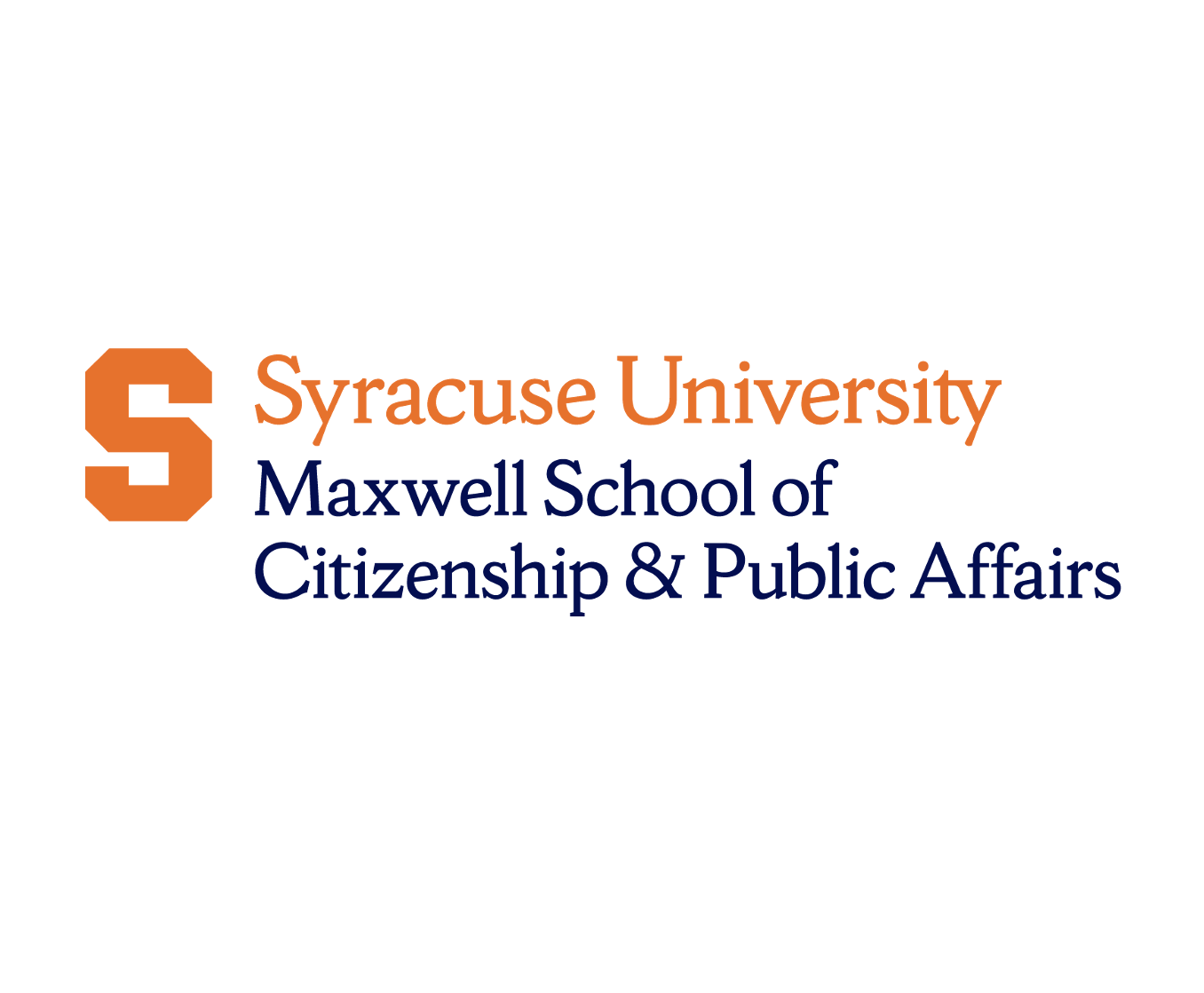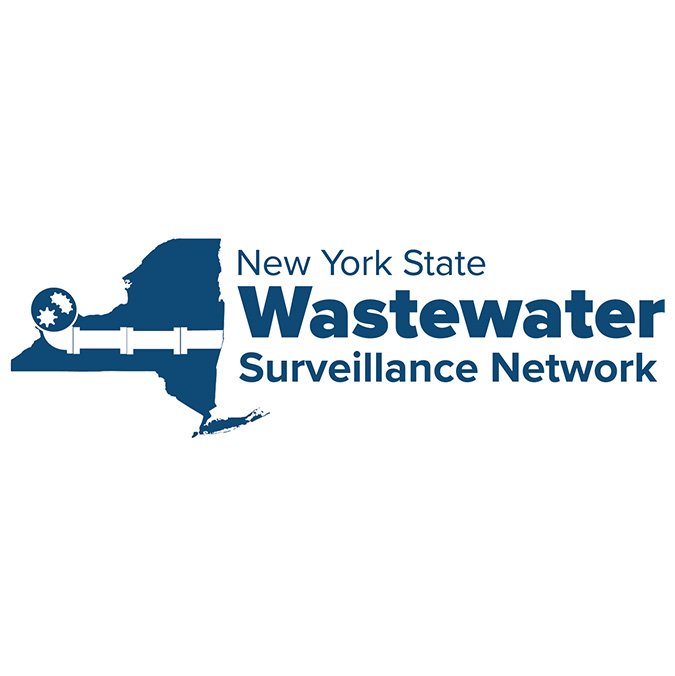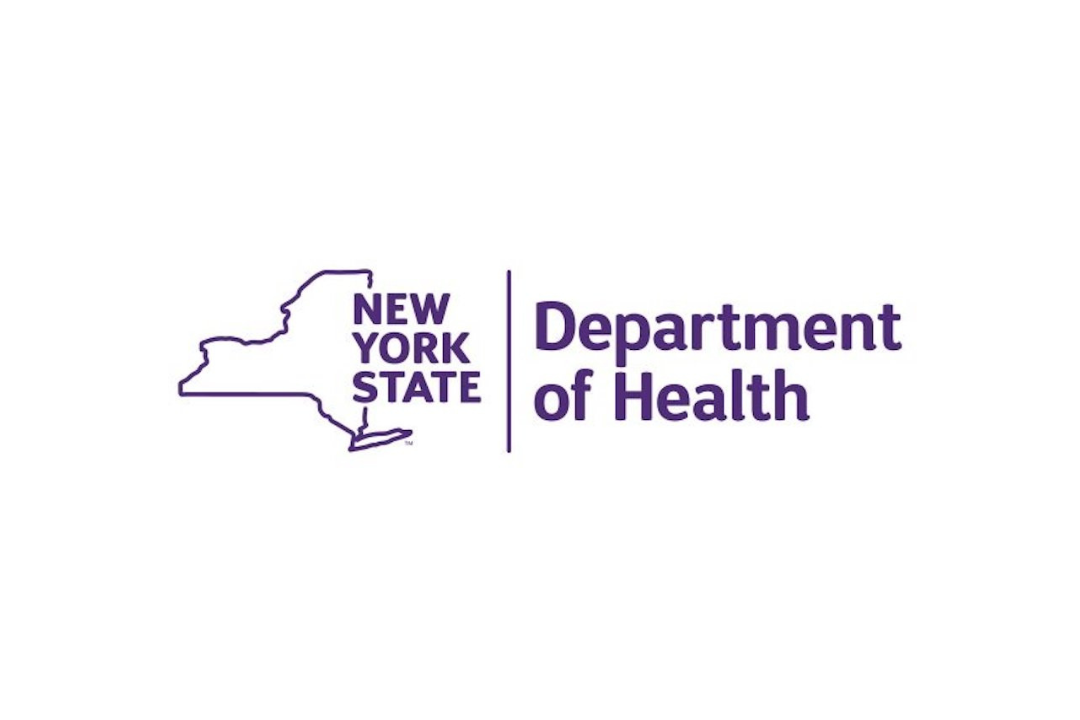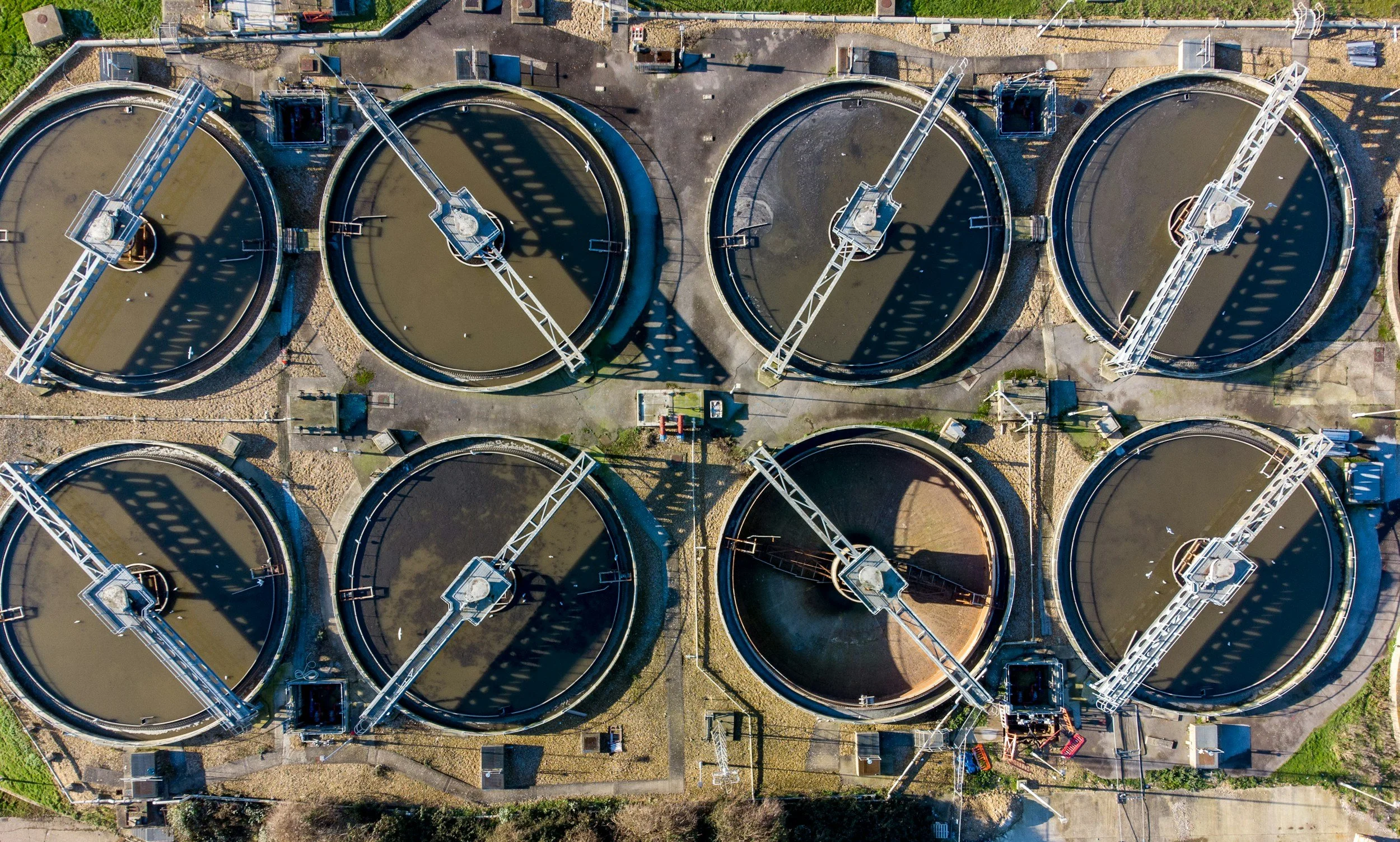
Wastewater Surveillance Summit
Advances Beyond COVID-19: Uncovering Public Health Insights through Wastewater Data
Syracuse University ‘s National Veterans Resource Center - Syracuse, NY
October 23, 2025
See you on October 23, 2025!
•
•
•
See you on October 23, 2025! • • •
About the Summit
Wastewater surveillance has emerged as a powerful tool for protecting public health from detecting early signs of COVID-19 to informing broader health interventions. Now, it's time to look beyond the pandemic.
The 2025 Wastewater Surveillance Summit, hosted by Syracuse University and the New York State Department of Health, brings together public health professionals, utility operators, policymakers, researchers, and community leaders to explore the next chapter of this growing field. Together, we’ll examine novel advances, share real-world applications, and foster cross-sector collaboration to strengthen public health through wastewater data.
This year’s conference will be offered in a hybrid format, with both in-person and virtual attendance options available.
Thank you for joining us as we dive into the pipelines and uncover what’s next for wastewater surveillance.



Agenda
Thursday, October 23, 2025
The Summit will be held in the KG Tan Auditorium at the National Veterans Resource Center, Syracuse, NY.
Breakfast and lunch will be served in the Bisignano Grand Hall, also at the National Veterans Resource Center.
Click here to download the final agenda (PDF).
All agenda items subject to change.
-
Please check in at the front lobby of the National Veterans Resource Center (NVRC) in Syracuse, NY.
-
Breakfast will be served in the Bisignano Grand Hall of the NVRC.
-
David Larsen, Syracuse University
Daniel Lang, New York State Department of Health
-
Anna Mehrotra, Water Environment Federation
-
João Pedro Matias, European Union Drug Agengy
-
-
“Beyond THC: Integrating Natural and Synthetic Cannabinoid Monitoring into Wastewater Surveillance to Protect Public Health in New York State”
Lokesh Padhye, Stony Brook University
“Spatiotemporal trends of estimated drug consumption in Nassau County, New York, determined by wastewater-based epidemiology”
Rahul Kumar, Stony Brook University
“High-Confidence, Multi-Pathogen Wastewater Surveillance of Measles Virus, Mycobacterium tuberculosis, and Vibrio cholerae in Nassau County, New York”
Mian Wang, Stony Brook University
“Evaluation of Wastewater Surveillance for Hepatitis A and Norovirus in New York City”
Monica Foote, Wadsworth Center, NYS Department of Health
-
Lunch will be served in the Bisignano Grand Hall of the NVRC.
-
Herbert Oberacher, Medical University of Innsbruck
-
“Wastewater Surveillance for Influenza across New York State”
Kirsten St. George, Wadsworth Center, NYS Department of Health
“Preliminary investigation on the utility of Respiratory Syncytial Virus sequencing and lineage analysis in wastewater”
Daryl Lamson, Wadsworth Center, NYS Department of Health
“Genomic Surveillance of Respiratory Syncytial Virus Through Wastewater Sampling”
Rafael Schulman, SUNY Upstate
“Long term assessment of SARS-CoV-2 in wastewater and the transition to evaluate additional viral targets”
Ayaaz Amirali, University of Miami
-
-
“Recovering wastewater RNA for virome sequencing by systematically optimized tangential-flow ultrafiltration and Nanotrap Microbiome Particles”
Yinyin Ye, University at Buffalo
“Isolating High Quality Genetic Material from Wastewater: Method Comparison and Implications for Downstream Sequencing”
Kaitlyn Schaaf, Wisconsin State Laboratory of Hygiene
“Pathogen Community Diversity from School Sewersheds: Shotgun Metagenomics as an Early, Target-Agnostic Indicator for Community Health”
Oona Shigeno Risse-Adams, Cornell University
“Spatial prediction analysis of the risk of contagion (SPARC): A new approach to estimate infectious disease spatial spread”
Dustin Hill, Syracuse University
-
David Larsen, Syracuse University
-
Amanda Darling, Harvard University
Dana Neigel, CDC Foundation
Dustin Hill, Syracuse University
Emma Gorin, Columbia University
Evan Owens, Wadsworth Center, NYS Department of Health
Jennifer Laplante, Wadsworth Center, NYS Department of Health
Jonathan Bard, State University of New York at Buffalo
Latavia Hill, Wadsworth Center, NYS Department of Health
Mila Neyra, Syracuse University
Nicole Pulido, Syracuse University
Reed Robinson, Wadsworth Center, NYS Department of Health
Sonali Biswas, Wadsworth Center, NYS Department of Health
Yuriy Levin, New Jersey Department of Health-Communicable Disease Service
-
Anna Mehrotra, PhD, PE is a wastewater specialist with over 20 years of experience as an engineer, researcher, policy analyst, and educator. She recently completed a four-year tenure as Director of the Wastewater Surveillance Program at the Water Environment Federation (WEF), where she led training initiatives, collaborative partnerships, pilot projects, and other efforts aimed at strengthening connections between wastewater utilities and public health agencies. Her team’s work advanced the practice of wastewater surveillance and broadened participation in the CDC’s National Wastewater Surveillance System. Dr. Mehrotra now serves as Senior Advisor for Infrastructure and Public Health at WEF, continuing her leadership at the intersection of public health and water by focusing on protecting the health of water workers and elevating their role as frontline detectors of emerging biological threats. Dr. Mehrotra is a licensed professional engineer and holds a PhD in Civil and Environmental Engineering from the University of California, Berkeley.
-
João Pedro Matias is an Epidemiologist who graduated from the London School of Hygiene and Tropical Medicine (LSHTM). In 2004, he joined the European Union Drugs Agency at the Public Health Unit as a Principal Scientific Analyst, responsible for the epidemiological indicator "Prevalence and patterns of drug use", addressing topics such as drug use in nightlife settings, wastewater analysis, and survey epidemiology. He also worked at the United Nations Office on Drugs and Crime (UNODC) in Vienna as a drug market analyst.
Herbert Oberacher is a Professor of Metabolomics and Bioanalytical Mass Spectrometry at the Medical University of Innsbruck, Austria. In 2016, he introduced wastewater-based epidemiology to Austria through annual drug monitoring studies. Over the past five years, he has played a key role in establishing and implementing wastewater monitoring programs for pathogens, including SARS-CoV-2, influenza, and measles, at both national and regional levels.
-
Lokesh Padhye is the Associate Professor of Civil Engineering and SoMAS (joint) at Stony Brook University and Associate Director of Emerging Contaminants Research at the New York State Center for Clean Water Technology. His research focuses on improving water quality by identifying, monitoring, and treating trace contaminants, such as PFAS, microplastics, tire-chemicals, pharmaceuticals, and pesticides, in natural and engineered environments. Previously, Padhye was an Associate Professor of Environmental Engineering at the University of Auckland, New Zealand, and has held positions at IIT Bombay, Geosyntec Consultants, and MIT as a Visiting Scholar. His work has been recognized with awards from leading scientific and engineering organizations worldwide.
Dr. Rahul Kumar is a Research Scientist at the New York State Center for Clean Water Technology at Stony Brook University. Dr. Kumar earned his Ph.D. in Civil Engineering from the University of Auckland, New Zealand, in 2020, and completed two years of postdoctoral training at the Biodesign Center for Environmental Health Engineering at Arizona State University. Dr. Kumar's research interests lie broadly in Environmental Chemistry and Environmental Health. His current research lies in wastewater-based epidemiology (WBE), a rapidly emerging public health monitoring tool to identify public health threats and understand community health trajectories. His Ph.D. thesis focused on understanding emerging contaminants' occurrence and fate in the environment and developing innovative solutions to treat wastewater.
Dr. Mian Wang is a Research Scientist at the Center for Clean Water Technology and the Department of Civil Engineering at Stony Brook University. Her current research focuses on applying wastewater-based epidemiology to monitor emerging pathogens, developing novel treatment technologies for decentralized wastewater systems, and advancing biological remediation of groundwater impacted by contaminants of emerging concern. Her main goal is to promote water sustainability by leveraging environmental microbiology to reduce health risks, minimize energy consumption, and lower the carbon footprint.
Monica Foote, PhD, is the incoming Director of the Wastewater Processing Laboratory at the Wadsworth Center, NYSDOH. She has spent the past two years as QA Manager for the Laboratory of Viral Diseases at Wadsworth, contributing to the validation of wastewater assays for Flu-RSV and Enterovirus D68. She holds a BS from Cornell University and a PhD from Iowa State University. Her postdoctoral research in immunology and physiology was conducted at Cornell, the University of Miami, and the FDA (CBER).
-
Ayaaz Amirali earned his Master’s in Biological Anthropology, Forensic Anthropology from the University of Miami and is currently completing a second Master’s in Marine Archeology at the same institution. He serves as a researcher in the University of Miami’s Department of Environmental Engineering, where his work focuses on wastewater surveillance. His research primarily examines COVID-19 viral levels in wastewater across Miami-Dade County.
Daryl M. Lamson is the Assistant Director of Research and Development in the Laboratory of Viral Diseases at the Wadsworth Center, NYSDOH. His research focuses on the development, implementation, and data integration of new technologies and chemistries into the laboratory. Mr. Lamson's primary focus has been implementation of whole genome sequencing of viral pathogens including SARS-CoV-2, enterovirus, adenovirus and respiratory syncytial virus from both clinical samples and wastewater.
Rafael Schulman is an MD/PhD student at SUNY Upstate Medical University. He is fascinated by the evolution of biological molecules, and the way that biological changes can affect the prevention, diagnosis, and treatment of diseases. For his thesis, he is focusing on the rapidly evolving genomes and antigenic proteins of RNA viruses, specifically SARS-CoV-2 and Respiratory Syncytial Virus (RSV). Wastewater-based epidemiology provides a novel way to sample the genomes of these pathogens at a scale that was previously not possible.
Kirsten St. George is the Director of Virology and Chief of Viral Diseases at the Wadsworth Center, and a Clinical Professor in the Biomedical Science Department at SUNY Albany. At Wadsworth, she oversees a diverse virology team with diagnostic, surveillance, reference, research, training, and regulatory responsibilities. Prior to her 20 years at Wadsworth, she spent 25 years in academic medical centers in Australia and the US, working in basic and applied research programs, and clinical diagnostics. She is also the Lab Lead for the New York State Wastewater program and the current chair of the National Centers of Excellence Laboratory Committee.
-
Dr. Yinyin Ye is an assistant professor of Environmental Engineering in the Department of Civil, Structural and Environmental Engineering at the University at Buffalo. Her research focuses on pathogen detection and inactivation in engineered systems. She received the National Science Foundation CAREER Award in 2024 to advance proteomic analysis and education for environmental science and engineering.
Dr. Dustin Hill is a postdoctoral researcher at Syracuse University. Dr. Hill is an environmental scientist and epidemiologist. He applies his training in statistics, machine learning, and spatial analysis to support public health research. Dr. Hill has worked on infectious diseases and wastewater surveillance for five years developing data dashboards, analyzing data, and publishing innovative research in this growing field.
Oona Shigeno Risse-Adams is a Ph.D. student in Computational Biology at Weill Cornell Medicine, where her research spans pathogen genomics, environmental surveillance, and statistical genetics. She has worked on wastewater pathogen surveillance via shotgun metagenomics, developing reproducible workflows to track pathogen diversity and community-level health indicators. Her broader research experience includes spatial transcriptomics and gene x environment interaction studies at institutions including Weill Cornell Medicine, Fred Hutchinson Cancer Center, Novo Nordisk, and Genentech. Oona is committed to bridging computational methods with public health applications, advancing early-warning systems for infectious disease and community health.
Kaitlyn Schaaf is APHL-CDC Public Health Laboratory Fellow working at the Wisconsin State Laboratory of Hygiene. She began her fellowship this past June after graduating from Vanderbilt University with a PhD in Biomedical Sciences. So far, her project has focused on harmonizing the wastewater surveillance workflow across targets to minimize sample processing.
Speaker Bios
Summit Logistics
Venue: The Summit will be held at Syracuse University’s National Veterans Resource Center in Syracuse, NY.
101 Waverly Ave, Syracuse, NY 13244
National Veterans Resource Center
Parking: Complimentary parking will be provided for all Summit attendees from 7:30am to 6:45pm. When you enter the garage, you will receive a punch ticket. When exiting, please use the Harrison St. side of the garage, present your ticket to the attendant, and let them know you attended the Wastewater Surveillance Summit.
University Avenue Garage
1101 E Adams St, Syracuse, NY 13210
Lodging: We have some room blocks reserved at the following hotels for October 22, 2025 through October 24, 2025.
Hotel Skyler ($169/night) Book by 10/03
601 South Crouse Avenue Syracuse, NY 13210
Parkview Hotel ($159/night) Book by 10/01
713 E Genesee Street Syracuse, NY 13210
Marriott Hotel ($219/night) Book by 10/01
100 E Onondaga St Syracuse, NY 13202
Registration
Join us at the 2025 Wastewater Surveillance Summit, a gathering focused on the power of wastewater data to inform and improve public health.
This event brings together researchers, public health professionals, utility operators, community leaders, and policymakers to explore how wastewater surveillance is evolving and how it can be used to address current and future public health challenges.
Whether you're new to the field or deeply involved, this is your chance to connect, learn, and contribute to the growing movement that’s turning wastewater data into actionable insights.
Date: October 23, 2025 (8am - 6pm)
Location: Syracuse, NY at the National Veterans Resource Center (Livestream Access Available)
Registration Fee: Free
Registration Deadline: October 10, 2025
Registration is required. Space is limited for in-person attendees so register early to reserve your spot!
Call for Abstracts
Whether you're a researcher, public health practitioner, utility professional, community partner, or policymaker, we welcome your insights and experiences and invite you to share your work. This is an opportunity to highlight innovative approaches, lessons learned, and emerging ideas that reflect the growing potential of wastewater surveillance. We are accepting abstracts for:
Oral Presentations
Poster Sessions
Topics may include (but are not limited to):
Public health decision-making & local impact
Policy development and data governance
Cross-sector partnerships
New or emerging surveillance targets
Deadline to submit: August 22, 2025







